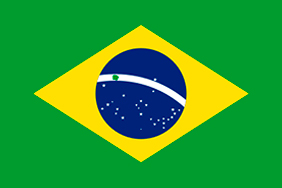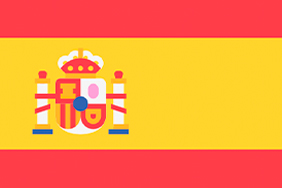The first project in Brazil to meet the SD VISta standard, contributing to 7 SDGs.
START
January 1, 2013
RO
Cujubim
LOCAL PARTNERS
VERRA REGISTRY

Voted the 2nd best carbon project in the world by Environmental Finance in 2023.
INTERNATIONAL REFERENCE IN SUSTAINABLE FOREST MANAGEMENT THAT HAS BECOME A TRUE HAVEN FOR AMAZONIAN BIODIVERSITY.
The Manoa REDD+ Project area covers more than 72,000 hectares of conserved forest, playing a key role in maintaining “ecological corridors” with Conservation Units in the state of Rondônia, mitigating the negative impacts of regional degradation. It also serves as a refuge for various endangered species and harbors High Conservation Value (HCV) attributes.
Socially, the presence of Manoa and the continuation of its activities in the region provide numerous direct and indirect benefits at various impact scales, especially at a regional level, focusing on the municipality of Cujubim.
Since 2017, much of the surrounding properties have been losing forest cover due to livestock and agricultural activities, particularly soybean cultivation. The Manoa Farm, as an international reference in sustainable forest management, stands as an exception and has remained nearly intact over the years.
Because of this unique condition, Manoa Farm has become a refuge for over 410 wildlife species identified locally through studies conducted in the area.
Impact of the Manoa REDD+ Project
under management
14 of which are
endangered
6 of which are
endangered
Co-Benefits
The Manoa REDD+ Project contributes to the United Nations Sustainable Development Goals (SDGs).
The project expands access to education in the region with lectures and training on low-impact management techniques, continuously empowering both young people and adults. It also conducts environmental education activities to spread the importance of forest conservation. In partnership with the Federal University of Rondônia (UNIR), the project further supports scientific production by providing logistical support for research in the area.
The management activity carried out by the project does not involve the extraction of timber in Permanent Preservation Areas (APP), promoting the conservation of these areas. Additionally, procedures are implemented to prevent tree falls, log dragging, and various other activities within these areas, contributing to their maintenance. The project aims to protect approximately 5,119 hectares of forest in APPs.
The practice of certified sustainable forest management promotes the annual generation of quality jobs, which are preferably filled by local labor, mainly from the municipality of Cujubim. All hiring follows labor laws strictly, ensuring proper working conditions.
The project encourages low-impact forest management, supporting 26 industries in Cujubim that use sustainable raw materials and integrate into value chains, promoting conservation and socioeconomic development. With FSC and PFSC certifications, Manoa ensures quality and responsibility in production. The project also spreads knowledge about the efficient and sustainable use of natural resources, fostering awareness among the local population.
The activities carried out by the project aim to combat climate change and its impacts through the reduction of deforestation in the project area. As a result, the project directly contributes to Brazil’s emissions reduction target, with a potential to reduce 8,378,700 tCO2e of greenhouse gas emissions over a period of 30 years.
The project promotes the conservation of biodiversity and ecosystem services through low-impact forestry management, certified by the FSC and PFSC labels, encouraging the sustainable use of terrestrial ecosystems. With wildlife monitoring in partnership with universities and sustainable exploration of the flora on the farm, it also protects Areas of High Conservation Value (HCV), preserving habitats for vulnerable species and rare ecosystems, such as the “saleiro” (saltlick).
Through partnerships with local universities, the project enables the execution of various research studies, providing benefits for both direct and indirect stakeholders. Partnerships with institutions in Cujubim, public bodies, and private entities are reflected in activities such as environmental education, promotion of visits to Manoa, training in low-impact forestry techniques, as well as donations made by the company.
Fill in the fields below to offset your company's emissions.
office
Av. Angelica, 2330
Ed. New England - 5th floor
Higienópolis, São Paulo - SP
PRESS
Send an email to: mkt.decarbon@ambipar.com


